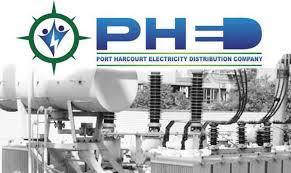Business
PHED, Ateke Partner For Better Service Delivery

The Port Harcourt Electricity Distribution company (PHED) has stated its readiness to partner with the Amanyanabo of Okochiri Kingdom and the Sekuro 1 of Niger Delta, King Ateke Micheal Tom.
The Managing Director/Chief Executive Officer of PHED, Dr Benson Uwheru, gave this indication during a courtesy visit to King Ateke Tom’s palace in the ancient city of Okochiri, recently.
Speaking during the courtesy visit, Uwheru said the visit to the respected king was strategically designed to familiarise his team with the palace and to deepen the long-standing relationship between PHED and the monarch.
He said it was further designed to discuss new ways of collaboration with the king and his kingdom in areas of common interest with a view to providing excellent service delivery in the kingdom.
Uwheru applauded the traditional ruler for the tranquility being enjoyed in his kingdom and the entire state where indigenes and visitors now feel at home with a peaceful atmosphere that enable businesses to thrive.
He acknowledged and appreciated the king’s support for the DisCo, and pledged that the company would continue to interact with the monarch and seek counsel and support from him. Speaking further, Uwheru apprised the king with initiatives implemented by the company to ensure that the yearnings of customers for improved power supply in his kingdom and across the company’s franchise areas were achieved.
According to Uwheru, the company has invested in infrastructure, technology upgrade and deployment, human capital develooment, among others, as a show of commitment to fulfilling its brand promise of excellent service delivery to customers.
Meanwhile, Uwheru used the opportunity to intimate the king about some challenges impeding the company’s activities and frustrating it from carrying out its legitimate operations.
He said that foremost among them were vandalism, staff assault, non-payment of electricity bills, rejection of electricity bills, etc.
He sought the support and intervention of the king in advocating that customers of the company pay their electricity bills, take ownership of power facilities in their communities, stop vandalism, staff assault, meter bypass, bill rejection and other activities inimical to the operations of the company, noting that “we cannot progress by taking retrogressive actions.”
Transport
Automated Points Concession : FAAN Workers Gave 72hrs To Revise Decisions In PH

Transport
FAAN Announces Pick-Up Points for Go-Cashless Cards

Business
Fidelity Bank To Empower Women With Sustainable Entrepreneurship Skills, HAP2.0
-

 News5 days ago
News5 days agoDisu Takes Over As New IGP …Declares Total War On Corruption, Impunity
-
Politics2 days ago
2027: NIGERIANS FAULT INEC ON DIGITAL MEMBERSHIP REGISTER DIRECTIVE
-

 Environment2 days ago
Environment2 days agoLAWMA Director Says Sweeping Reforms Have Improved Waste Collection
-

 Featured5 days ago
Featured5 days agoFubara Reads Riot Act To New SSG, CoS …Warns Against Unauthorized Meetings
-
Politics2 days ago
LP Crisis: Ex-NWC Member Dumps Dumps Abure Faction
-
Rivers5 days ago
Terrorism: COAS Makes Case For Local Intelligence Gathering
-

 Sports2 days ago
Sports2 days agoAbia Not Sure To Secure continental Ticket
-

 Politics2 days ago
Politics2 days agoUmahi Dismisses Allegations On Social Media, Insists On Projects Delivery

